10. Things Fall Apart by Chinua Achebe (1958)
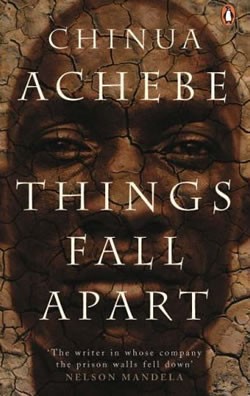
9. A Lesson Before Dying by Ernest J. Gaines (1993)
 Trigger Warning: this book may lead to intellectual growth and emotional development. A Lesson Before Dying by Ernest J. Gaines is a highly acclaimed work of American fiction that addresses themes of racism and racial identity in a rural 1940s Louisiana community. In 2008, NCAC was prompted to send a letter to Huntsville City Schools in Alabama after two parents objected to sexual references and profanity in the book. Ultimately, the School Board voted to make the book optional reading on the ninth grade summer reading list. Inherently a story of friendship, resilience, and hope, Gaines undoubtedly deserves praise for creating a world where compassion for a people and their struggle reigns paramount to hatred and injustice. Perhaps we could all learn a thing or two from him.
Trigger Warning: this book may lead to intellectual growth and emotional development. A Lesson Before Dying by Ernest J. Gaines is a highly acclaimed work of American fiction that addresses themes of racism and racial identity in a rural 1940s Louisiana community. In 2008, NCAC was prompted to send a letter to Huntsville City Schools in Alabama after two parents objected to sexual references and profanity in the book. Ultimately, the School Board voted to make the book optional reading on the ninth grade summer reading list. Inherently a story of friendship, resilience, and hope, Gaines undoubtedly deserves praise for creating a world where compassion for a people and their struggle reigns paramount to hatred and injustice. Perhaps we could all learn a thing or two from him.
8. Beloved by Toni Morrison (1987)
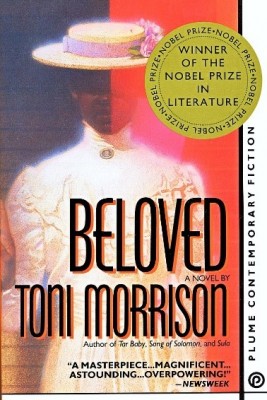 Contrary to the title of Toni Morrison’s Pulitzer Prize-winning novel, Beloved is not loved by all. It follows the life of a 19th-century Kentucky woman who kills her daughter rather than allowing her to endure the horrors of slavery, and the psychological consequences her family endures because of her decision. Wrought with complicated themes of slavery, identity, and community, Beloved is a popular choice for English teachers across the country. However, in 2007, NCAC sent a letter to Jefferson County Public Schools in Kentucky after they removed the book from Advanced Placement English classes due to its racial and sexual content. More recently, NCAC helped school board members at Gilbert Public Schools in Arizona fight a challenge to the novel after the school district received over 100 letters from parents lamenting the book’s “disturbing and inappropriate” content. The book was ultimately retained in the curriculum, where it is sure to become beloved by generations of students to come.
Contrary to the title of Toni Morrison’s Pulitzer Prize-winning novel, Beloved is not loved by all. It follows the life of a 19th-century Kentucky woman who kills her daughter rather than allowing her to endure the horrors of slavery, and the psychological consequences her family endures because of her decision. Wrought with complicated themes of slavery, identity, and community, Beloved is a popular choice for English teachers across the country. However, in 2007, NCAC sent a letter to Jefferson County Public Schools in Kentucky after they removed the book from Advanced Placement English classes due to its racial and sexual content. More recently, NCAC helped school board members at Gilbert Public Schools in Arizona fight a challenge to the novel after the school district received over 100 letters from parents lamenting the book’s “disturbing and inappropriate” content. The book was ultimately retained in the curriculum, where it is sure to become beloved by generations of students to come.
7. Invisible Man by Ralph Ellison (1952)
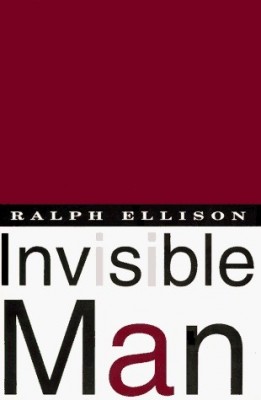 Sometimes even the invisible get criticized. Winner of the National Book Award and ranked nineteenth on Modern Library’s list of 100 best English-language novels of the 20th century, Ralph Ellison’s Invisible Man has nonetheless been challenged for its lack of “literary value.” Ellison’s nameless protagonist is meant to represent the everyday African-American in the early twentieth century: he addresses social and intellectual issues, including Black Nationalism and Marxism. In 2013, NCAC sent a letter to Randolph County Public Schools in North Carolina after they banned the book because of a complaint that it “is not so innocent; instead, this book is filthier, too much for teenagers.” Ten days after the original ban, the board held a special meeting to reconsider their actions and voted 6-1 to return the book. One member of the board expressed his shift after considering his son’s military career: “He was fighting for these rights. I’m casting a vote to take them away. Is it right of me? No.” Such reflections would even give the Invisible Man reason to step into the light of day.
Sometimes even the invisible get criticized. Winner of the National Book Award and ranked nineteenth on Modern Library’s list of 100 best English-language novels of the 20th century, Ralph Ellison’s Invisible Man has nonetheless been challenged for its lack of “literary value.” Ellison’s nameless protagonist is meant to represent the everyday African-American in the early twentieth century: he addresses social and intellectual issues, including Black Nationalism and Marxism. In 2013, NCAC sent a letter to Randolph County Public Schools in North Carolina after they banned the book because of a complaint that it “is not so innocent; instead, this book is filthier, too much for teenagers.” Ten days after the original ban, the board held a special meeting to reconsider their actions and voted 6-1 to return the book. One member of the board expressed his shift after considering his son’s military career: “He was fighting for these rights. I’m casting a vote to take them away. Is it right of me? No.” Such reflections would even give the Invisible Man reason to step into the light of day.
6. The Color Purple by Alice Walker (1982)
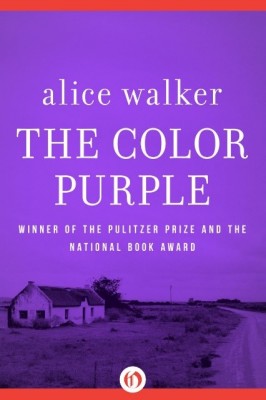
5. Black Boy by Richard Wright (1945)
 For some, coming-of-age novels seem to assume the reputation of their protagonists: perpetually misunderstood. Black Boy is one of those novels. Richard Wright’s autobiography examines his tortured years in the Jim Crow South and his eventual move to Chicago, where he establishes his writing career and becomes involved with the Communist Party. Criticized for being anti-American, anti-Semitic, and anti-Christian, the book has come under fire for more than its perceived political and religious content. Black Boy’s sexual content and grim picture of race relations has made it a book-du-jour for many censors. As Wright’s best-selling novel to date, readers have clearly found great meaning in the richly historical tale.
For some, coming-of-age novels seem to assume the reputation of their protagonists: perpetually misunderstood. Black Boy is one of those novels. Richard Wright’s autobiography examines his tortured years in the Jim Crow South and his eventual move to Chicago, where he establishes his writing career and becomes involved with the Communist Party. Criticized for being anti-American, anti-Semitic, and anti-Christian, the book has come under fire for more than its perceived political and religious content. Black Boy’s sexual content and grim picture of race relations has made it a book-du-jour for many censors. As Wright’s best-selling novel to date, readers have clearly found great meaning in the richly historical tale.
4. Their Eyes Were Watching God by Zora Neale Hurston (1937)
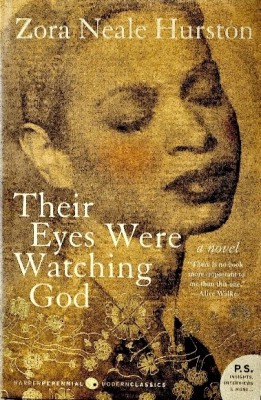 Regarded as a seminal work in African-American and women’s literature, Their Eyes Were Watching God by Zora Neale Hurston tells the story of a young black woman growing up in the Deep South via an extended flashback. Though Time Magazine included the novel on its list of 100 best English-language novels published since 1923, not every English-language reader agrees. In 1997, parents in Brentsville, Virginia attempted to ban the novel from the Advanced English curriculum for “sexual explicitness.” Thankfully, the ban was overturned. Though written in 1937, Hurston’s novel continues to resonate with readers who understand the long journey to self-realization and personal fulfillment. We believe Their Eyes Were Watching God is best characterized in the words of fellow censored author, Alice Walker: “There is no book more important to me than this one.”
Regarded as a seminal work in African-American and women’s literature, Their Eyes Were Watching God by Zora Neale Hurston tells the story of a young black woman growing up in the Deep South via an extended flashback. Though Time Magazine included the novel on its list of 100 best English-language novels published since 1923, not every English-language reader agrees. In 1997, parents in Brentsville, Virginia attempted to ban the novel from the Advanced English curriculum for “sexual explicitness.” Thankfully, the ban was overturned. Though written in 1937, Hurston’s novel continues to resonate with readers who understand the long journey to self-realization and personal fulfillment. We believe Their Eyes Were Watching God is best characterized in the words of fellow censored author, Alice Walker: “There is no book more important to me than this one.”
3. The Bluest Eye by Toni Morrison (1970)
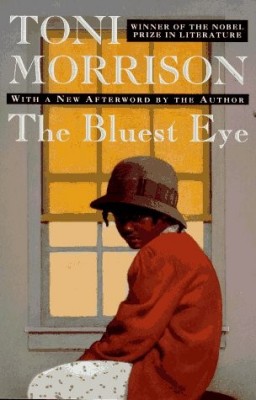 The Bluest Eye, Toni Morrison’s first novel, follows the story of a young girl who struggles immensely with her personal identity in Midwest America during the years following the Great Depression. The book deals with difficult issues like race, rape, and incest–making it a target for censors across the county. In 2010, the book came under fire in Adams 12 Five Star School in Colorado when two parents objected to the mature subject matter. NCAC sent a letter to the school board “urging them to trust the professional judgment of teachers and the freedom to read of high school students.” Unfortunately, the challenge resulted in restrictions on how the book could be taught, to what grade level, and in what context. In 2013, Ohio School Board of Education president Debe Terhar labeled the book “pornographic” and criticized its inclusion in the Common Core Standard’s recommending reading list for 11th graders. Morrison spoke out against the attempts to remove the book.
The Bluest Eye, Toni Morrison’s first novel, follows the story of a young girl who struggles immensely with her personal identity in Midwest America during the years following the Great Depression. The book deals with difficult issues like race, rape, and incest–making it a target for censors across the county. In 2010, the book came under fire in Adams 12 Five Star School in Colorado when two parents objected to the mature subject matter. NCAC sent a letter to the school board “urging them to trust the professional judgment of teachers and the freedom to read of high school students.” Unfortunately, the challenge resulted in restrictions on how the book could be taught, to what grade level, and in what context. In 2013, Ohio School Board of Education president Debe Terhar labeled the book “pornographic” and criticized its inclusion in the Common Core Standard’s recommending reading list for 11th graders. Morrison spoke out against the attempts to remove the book.
2. The Autobiography of Malcolm X by Malcolm X and Alex Haley (1965)
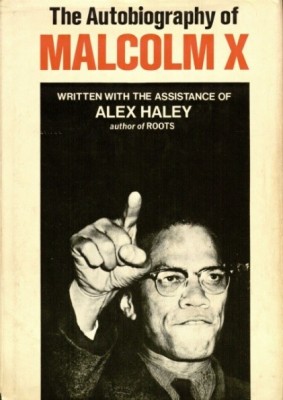
1. I Know Why the Caged Bird Sings by Maya Angelou (1969)
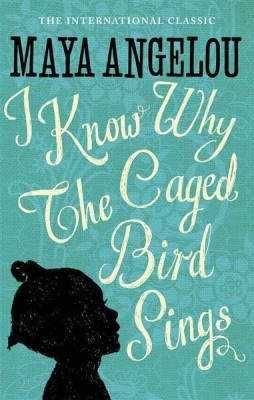 Maya Angelou has deservingly been placed on many “Top 10” lists for her breathtaking poetry and autobiographical books. And she’s on another list, too: the American Library Association’s Top 10 Banned Authors. In fact, she has been on that list every year for the past decade. According to the Office of Intellectual Freedom, her autobiography I Know Why the Caged Bird Sings has received numerous challenges due to its “bitterness and hatred toward white people” and encouragement of “deviant behavior because of references to lesbianism, premarital sex and profanity.” Nonetheless, Angelou was awarded the Presidential Medal of Freedom in 2011, ensuring that her words will continue to serve as a beacon of hope and inspiration.
Maya Angelou has deservingly been placed on many “Top 10” lists for her breathtaking poetry and autobiographical books. And she’s on another list, too: the American Library Association’s Top 10 Banned Authors. In fact, she has been on that list every year for the past decade. According to the Office of Intellectual Freedom, her autobiography I Know Why the Caged Bird Sings has received numerous challenges due to its “bitterness and hatred toward white people” and encouragement of “deviant behavior because of references to lesbianism, premarital sex and profanity.” Nonetheless, Angelou was awarded the Presidential Medal of Freedom in 2011, ensuring that her words will continue to serve as a beacon of hope and inspiration.


